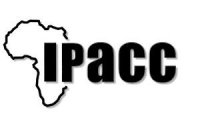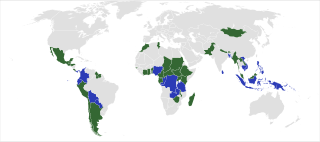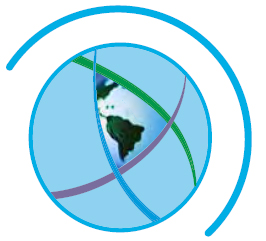Related Research Articles

The United Nations Environment Programme (UNEP) is responsible for coordinating responses to environmental issues within the United Nations system. It was established by Maurice Strong, its first director, after the United Nations Conference on the Human Environment in Stockholm in June 1972. Its mandate is to provide leadership, deliver science and develop solutions on a wide range of issues, including climate change, the management of marine and terrestrial ecosystems, and green economic development. The organization also develops international environmental agreements; publishes and promotes environmental science and helps national governments achieve environmental targets.

The United Nations Development Programme (UNDP) is a United Nations organization tasked with helping countries eliminate poverty and achieve sustainable economic growth and human development. Headquartered in New York City, it is the largest UN development aid agency, with offices in 170 countries.

The Global Environment Facility (GEF) was established on the eve of the 1992 Rio Earth Summit to help tackle our planet's most pressing environmental problems. The GEF unites 184 countries in partnership with international institutions, civil society organizations (CSOs), and the private sector to address global environmental issues while supporting national sustainable development initiatives. Since 1992, the GEF has provided close to $20.5 billion in grants and mobilized an additional $112 billion in co-financing for more than 4,800 projects in 170 countries. Through its Small Grants Programme (SGP), the GEF has provided support to nearly 24,000 civil society and community initiatives in 133 countries.

The United Nations Forum on Forests (UNFF) is a high-level intergovernmental policy forum. The forum includes all United Nations member states and permanent observers, the UNFF Secretariat, the Collaborative Partnership on Forests, Regional Organizations and Processes and Major Groups.

The Indigenous Peoples of Africa Co-ordinating Committee (IPACC) was founded in 1997. It is one of the main trans-national network organizations recognised as a representative of African indigenous peoples in dialogues with governments and bodies such as the UN. As of 2008, IPACC was composed of 150 member organisations in 21 African countries.

Partnerships in Environmental Management for the Seas of East Asia (PEMSEA) is a regional partnership programme implemented by the United Nations Development Programme (UNDP) and executed by the United Nations Office for Project Services (UNOPS). The project, started in 1994, was originally known as Prevention and Management of Marine Pollution in the East Asian Seas (SDS-SEA).

The United Nations Programme on Reducing Emissions from Deforestation and Forest Degradation is a collaborative programme of the Food and Agriculture Organization of the United Nations (FAO), the United Nations Development Programme (UNDP) and the United Nations Environment Programme (UNEP), created in 2008 in response to the UNFCCC decisions on the Bali Action Plan and REDD at COP-13. It should not be confused with REDD+, a voluntary climate change mitigation approach that has been developed by Parties to the UNFCCC.
Environmental governance is a concept in political ecology and environmental policy that advocates sustainability as the supreme consideration for managing all human activities—political, social and economic. Governance includes government, business and civil society, and emphasizes whole system management. To capture this diverse range of elements, environmental governance often employs alternative systems of governance, for example watershed-based management.

Reducing emissions from deforestation and forest degradation and the role of conservation, sustainable management of forests and enhancement of forest carbon stocks in developing countries (REDD+) was first negotiated under the United Nations Framework Convention on Climate Change (UNFCCC) in 2005, with the objective of mitigating climate change through reducing net emissions of greenhouse gases through enhanced forest management in developing countries. Most of the key REDD+ decisions were completed by 2013, with the final pieces of the rulebook finished in 2015.

Rajendra Madhavrao Shende, an alumnus of Indian Institute of Technology (IIT) and former Director in United Nations Environment Programme (UNEP), is currently serving as the Chairman of TERRE Policy Centre which is a not-for-profit organization engaged in the evidence-based policy development and project based advocacy on the sustainable development. Before August 2011, he was the Head of the OzonAction Branch of the United Nations Environment Programme, Division of the Technology, Industry and Economics in Paris.

The Center for International Sustainable Development Law (CISDL) is an international legal research center with the mission to promote sustainable societies and the protection of ecosystems by advancing the understanding, development and implementation of international sustainable development law.
Communication for social change, referred to as communication for sustainable social change and development, involves the use of variety of communication techniques to address inefficient systems, processes, or modes of production within a specific location that has not incurred major technological advances. Different mediums and approaches are used to help individuals among the targeted society to acquire new knowledge and skills. This will allow communities not only to experience change but to guide it as well.
The R20 – Regions of Climate Action is a non-profit environmental organization founded in September 2011, by former governor of California, Arnold Schwarzenegger, with the support of the United Nations. R20 is a coalition of sub-national governments, private companies, international organizations, NGOs, and academic & financial institutions. Its mission is to accelerate sub-national infrastructure investments in the green economy to meaningfully contribute to the Sustainable Development Goals (SDGs). The NGO operates at the sub-national level as R20 believes sub-national governments constitute a powerful force for change and are best positioned to take action & implement green projects.

The Sustainable Development Goals (SDGs) or Global Goals are a collection of 17 interlinked global goals designed to be a "blueprint to achieve a better and more sustainable future for all". The SDGs were set up in 2015 by the United Nations General Assembly and are intended to be achieved by the year 2030. They are included in a UN Resolution called the 2030 Agenda or what is colloquially known as Agenda 2030. The SDGs were developed in the Post-2015 Development Agenda as the future global development framework to succeed the Millennium Development Goals which ended in 2015.

The Millennium Development Goals Achievement Fund (MDG-F) was an international cooperation mechanism committed to eradicating poverty and inequality and to accelerating progress towards the Millennium Development Goals (MDGs) worldwide. Its aim was to improve livelihoods and to influence public policy, which made it responsive to the needs of the poorest populations.

The Environmental Protection Agency, is an agency of Ministry of Environment, Science, Technology and Innovation, established by EPA Act 490 (1994). The agency is dedicated to improving, conserving and promoting the country’s environment and striving for environmentally sustainable development with sound, efficient resource management, taking into account social and equity issues. It oversees the implementation of the National Environment Policy. EPA Ghana's mission is to manage, protect and enhance the country’s environment and seek common solutions to global environmental problems. Its mission is to be achieved through an integrated environmental planning and management system with broad public participation, efficient implementation of appropriate programs and technical services, advice on environmental problems and effective, consistent enforcement of environmental law and regulations. EPA Ghana is a regulatory body and a catalyst for change to sound environmental stewardship.
SEED is a global partnership for action on sustainable development and the green economy. It was initiated in 2001 by the German Federal Ministry for the Environment, Nature Conservation, Building and Nuclear Safety (BMUB). Under the name SEED Initiative it was presented as an “Example of Excellence” partnership inter alia by UNEP and BMUB at the Johannesburg World Summit on Sustainable Development in 2002 where it was also registered by the United Nations Environment Programme (UNEP), the United Nations Development Programme (UNDP), and the International Union for Conservation of Nature (IUCN) as a Type II Partnership. SEED was originally conceived as an acronym for Supporting Entrepreneurs for Environment and Development.
Action for Climate Empowerment (ACE) is a term adopted by the United Nations Framework Convention on Climate Change (UNFCCC). It refers to Article 6 of the Convention's original text (1992), focusing on six priority areas: education, training, public awareness, public participation, public access to information, and international cooperation on these issues. The implementation of all six areas has been identified as the pivotal factor for everyone to understand and participate in solving the complex challenges presented by climate change. The importance of ACE is reflected in other international frameworks such as the Sustainable Development Goals ; the Global Action Programme for Education for Sustainable Development ; the Aarhus Convention (2011); the Escazú Agreement (2018) and the Bali Guidelines (2010).
The history of climate change policy and politics refers to the continuing history of political actions, policies, trends, controversies and activist efforts as they pertain to the issue of global warming and other environmental anomalies. Dryzek, Norgaard, and Schlosberg suggest that critical reflection on the history of climate policy is necessary because it provides 'ways to think about one of the most difficult issues we human beings have brought upon ourselves in our short life on the planet’.
The United Nations Development Programme (UNDP) in South Africa is one of the 177 offices of the UNDP’s global networks located in the country's capital, Pretoria. Its vision is to empower people's lives and help nations to become stronger and more resilient. As a part of the wider UNDP's development efforts, the local office is responsible for supporting the government to develop and implement policies to accelerate the attainment of the Sustainable Development Goals (SDG) in South Africa. UNDP interventions in South Africa focus on promoting actions that contribute to address the triple challenge of inequality, poverty and unemployment that the county faces. In that regard, the interventions include the promotion of youth employment; building resilience to climate change impacts; biodiversity conservation; water management; promotion of access to sustainable, clean and affordable energy; and promotion of citizens participation in democratic processes. Leaving no-one behind, gender mainstreaming and innovation are in the center of all UNDP cooperation.
References
- ↑ "Territorial Approach (TACC) to Climate Change". unep.org. November 2011. Retrieved November 17, 2011.
- ↑ Saint Malo Declaration, General Assembly Summit of the Network of Regional Governments for Sustainable Development (nrg4SD), October 2008
- ↑ "Down To Earth - Territorial Approach to Climate Change (TACC)". undp.org. November 2011. Archived from the original on February 4, 2012. Retrieved November 17, 2011.